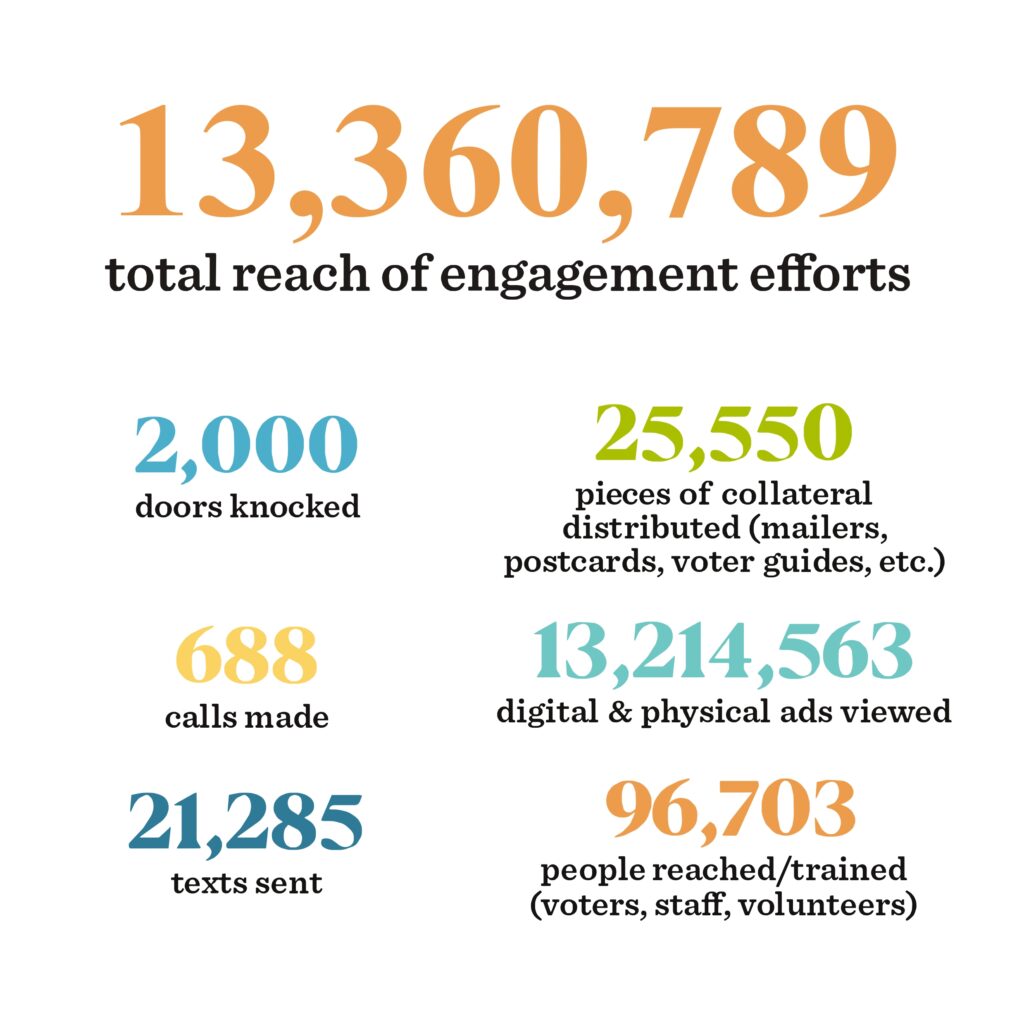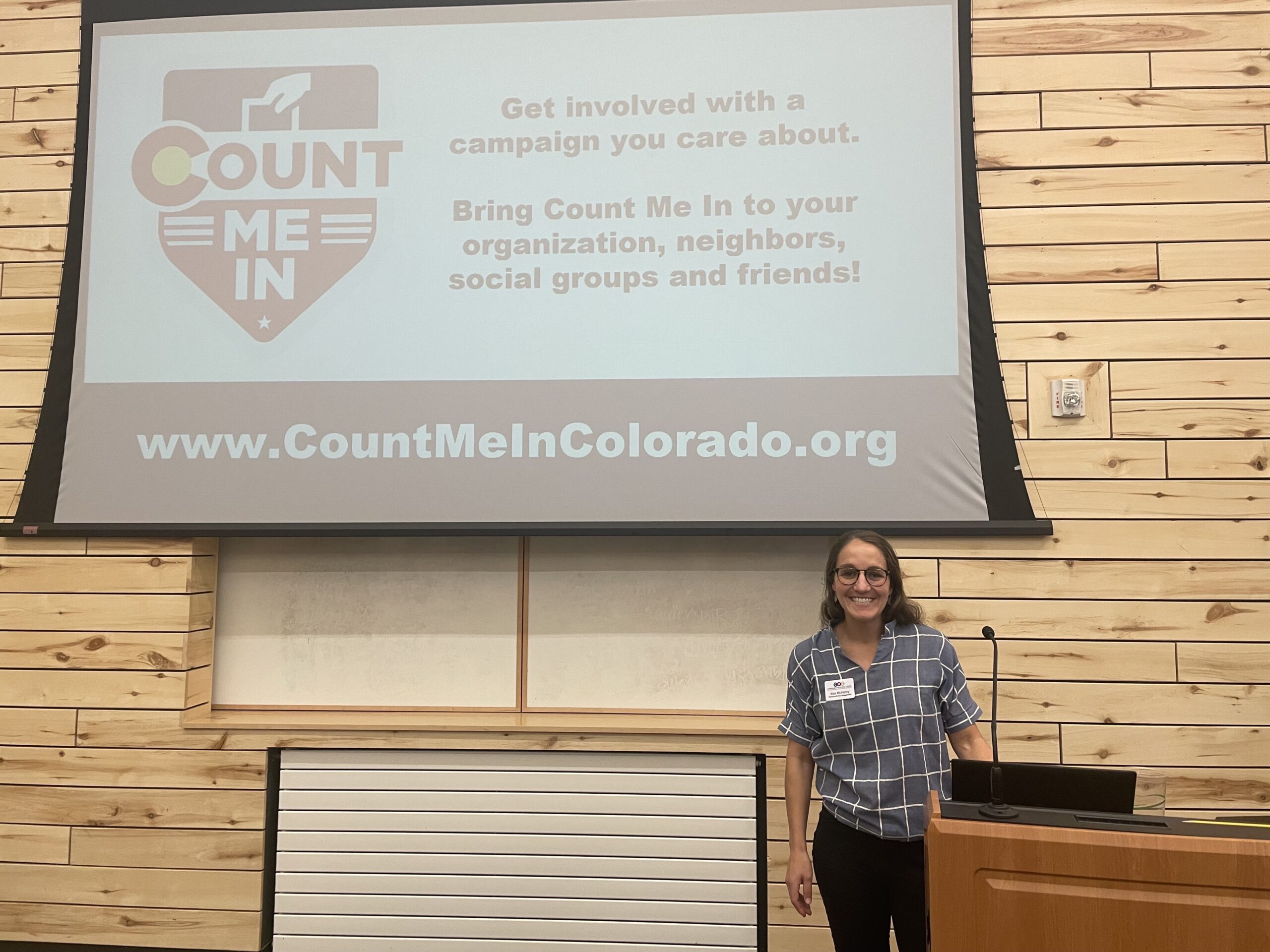For the second year, The Denver Foundation funded nonprofit organizations educating and activating voters. We funded 11 organizations through the Civic Fabric Fund. This funding supported their work during the municipal and statewide elections in 2023. The awards from the Civic Fabric Fund totaled $91,500 and were intended to support organizations working to register, educate, and mobilize new and low-turnout voters from historically underrepresented communities.
Grantees
We funded 11 organizations in 2023. Out of these 11, only eight were required to provide final reports based on the scope of work and funding level. This report reflects data from those final reports from the following grantees:
- Center for Working Families
- Colorado Fiscal Institute
- Colorado Immigrant Rights Coalition – CIRC
- Community Resource Center
- Ednium the Alumni Collective Inc.
- Latina Initiative Colorado
- Metropolitan State University of Denver
- EDUCATE Denver
This impact report highlights some of the successes and outcomes achieved by these organizations and identifies some of the challenges and needs for future work.


